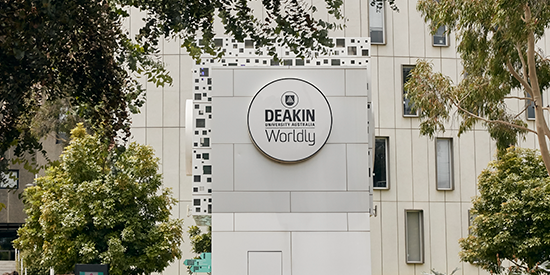Deakin health researchers awarded $1.5 million in NHMRC Ideas Grants
Research news
Researchers from Deakin University’s Faculty of Health have been awarded more than $1.5 million dollars in the National Health and Medical Research Council (NHMRC) Ideas Grant funding.
Professor Tania de Koning-Ward from the Institute for Mental and Physical Health and Clinical Translation (IMPACT) and Professor Tim Silk from the Centre for Social and Early Emotional Development (SEED Lifespan) will lead two new projects that will explore red blood cell reaction in malaria infection and premonitory urges in Tourette Syndrome respectively.
The NHMRC Ideas Grant scheme supports innovative research projects of between one to five years that address specific questions. It is open to researchers at all career stages and in any area of health and medical research from discovery to implementation.
Deakin’s successful projects are:
Formation of extracellular vesicles from red blood cells infected with malaria parasites and their role in disease, parasite communication and transmission - $838,138.00
Professor Tania de Koning-Ward, School of Medicine/IMPACT

The project aims to determine how malaria parasites can generate extracellular vesicles (EVs) from the red blood cells they infect. During a malaria infection, the EVs released from red blood cells and the cargo contained within the EVs modulate the host immune response and facilitate cell-cell communication. Increased levels of EVs correlate with disease severity. Knowledge gained in this project will help establish if the pathway(s) used to generate EVs can be exploited to prevent and/or treat severe malaria disease.
‘Despite the fact that EVs contribute to the severity of malaria disease, the mechanism by which they are generated by red blood cells infected with malaria parasites remains unknown,’ Professor Koning-Ward said.
‘We will be using a range of approaches to identify potential strategies to block EV production with anti-malaria drugs, aiming to prevent malaria disease and potentially even parasite transmission to mosquitos.’
The research team includes Dr Matthew Dixon and Professor Georges Grau.
The urge-to-tic: Examining the neural and experiential bases of Tourette syndrome - $699,360.80
Professor Tim Silk, School of Psychology/SEED Lifespan

People with Tourette Syndrome commonly experience unpleasant sensory phenomena known as premonitory urges (PUs) before they tic. These PUs play an important role in treatments like the Comprehensive Behavioural Intervention for Tics (CBIT). For the first time, this interdisciplinary project will investigate both subjective experience and brain activity associated with PU, and how the experience of PU and urge-related brain activity change following CBIT treatment.
‘I feel very fortunate to be able to carry out this work. Patients often report that premonitory urges are more distressing than the tics themselves and that they feel they would not tic if the urge was not present,’ Professor Silk said.
‘Understanding this important clinical feature may provide a unique avenue to target for better patient outcomes.’
The research team includes Dr Lisa Curtis-Wendlant, Dr Amanda Maxwell, Deakin Graduate researcher Jade-Jocelyne Zouki and Professor Jack Reynolds from the Alfred Deakin Institute for Citizenship and Globalisation (ADI).
The text of this article is licensed under the Creative Commons Attribution (CC BY) 4.0 International license. We'd love for you to share it, so feel free! Please note that images, videos, graphics and logos are not covered by the CC BY license and may not be used without permission from Deakin University or their respective copyright holder. If you have any questions, please contact researchcomms@deakin.edu.au.
Thanks for reading! You can find more stories like this on our Research News hub. We ask that Deakin University and individuals are appropriately credited and that you include links back to this website. Quotes in this article can be extracted for other articles provided individuals are appropriately credited and you include a link back to the article URL.
Share this story

Key Fact
Deakin University health researchers have been awarded more than $1.5 million dollars in NHMRC Ideas Grants.
